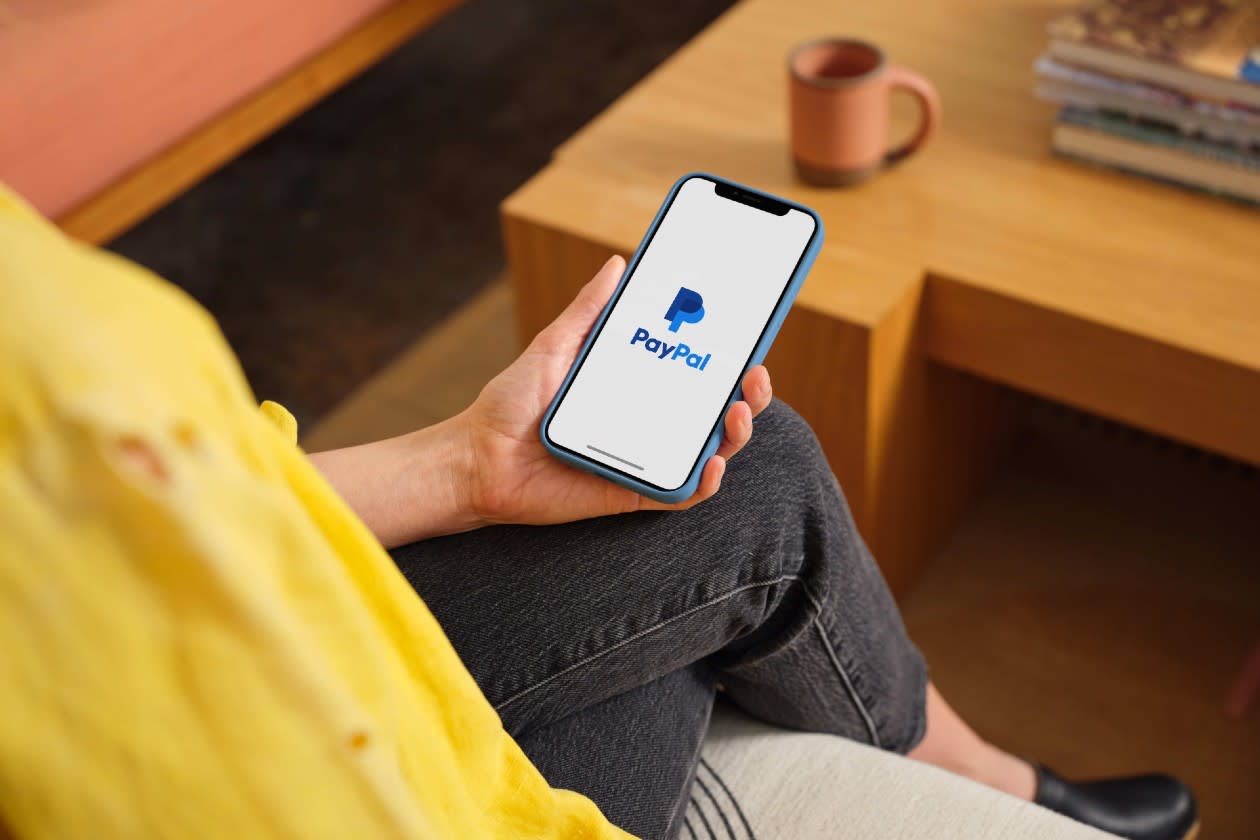PayPal reported a 6% rise in third-quarter revenue to $7.8bn, broadly as expected. Total payment volumes rose 9%, though there was a slowdown in growth from Braintree (unbranded card processing). Transaction margin rose 8% to $3.7bn.
Underlying operating income of $1.5bn was up 18% and ahead of consensus. That was driven by a higher revenue and improving margins.
There was a 31% rise in underlying free cash flow to $1.4bn and net cash was $1.9bn. Spending on share buybacks increased from $1.4bn to $1.8bn.
Fourth-quarter revenue is expected to show low single-digit growth, with mid-single-digit growth transaction margin growth for the full year.
The shares fell 4.4% in pre-market trading.
Our view
The prospect of a slowing growth rates in the final quarter of 2024 has taken some of the steam out of the recent recovery in investor sentiment towards PayPal. We still see plenty of structural growth drivers in the electronic payments industry. But the model is facing some strong headwinds.
In the digital wallet space, competition is intensifying from the likes of Apple Pay and Google Wallet, which are vying to become consumers' preferred payment method of choice. The space is becoming equally crowded in terms of services to merchants, and here there are newer entrants with arguably superior technology offerings.
PayPal's strongest volume growth is currently coming from its unbranded business which allows businesses to put their own name to the payment solution, but it’s starting to come up against some more challenging comparisons. It also opens the door to provide retailers with additional services such as the buy-now, pay-later offering, which we think may see further traction as consumers increasingly turn to credit to fund their spending.
Management’s shift in focus from unbranded volume to profitability is seeing some positive early results, but its important that it continues to enhance functionality if it wants to keep growing market share as it firms up prices.
We're also glad to see efforts to re-invigorate the branded checkout business drive some solid traction. Its blue and gold buttons are well trusted by consumers but in this fast-changing space that’s not enough.
PayPal is fighting hard to remain relevant in the payments world. Its Fastlane checkout promises to enhance the payments experience for customers, and a new advertising platform seeks to generate more revenue for both PayPal and the businesses that use it.
Some of the bill for this innovation is being funded by an aggressive cost-cutting program. But once that runs its course any further growth initiatives may dent profits before any benefit is felt. Marketing costs are also rising, no bad thing, but we’ll want to see evidence of a solid return on this investment next year.
A robust balance sheet, and strong free cash flows give firepower to make acquisitions, invest internally in upgrading the product suite, or distribute cash to shareholders. But remember, no returns are ever guaranteed.
Investors have strongly endorsed the direction in which CEO Alex Chris has steered PayPal during his first year in charge. We’re supportive of his focus on innovation, and the bottom line, but there is now some extra pressure to keep delivering and there’s still no assurance that consumer spending won’t come under pressure.
Environmental, Social & Governance Risks
The technology sector is generally low-risk in terms of ESG, but some segments like Electronic Components can be more exposed to environmental risks. Regulatory interest in the sector has picked up recently, leading to more acute business ethics risks. Other key risks include labour relations, data privacy and product governance.
According to Sustainalytics, PayPal's overall management of material ESG issues is strong. Concerns about anti-money laundering processes appear to have been addressed. The company fosters a culture of privacy by design and mandates annual employee training on data privacy. Its diversity programmes are well thought but staff turnover has been relatively high, a trend seen across much of the sector. PayPal is keen to highlight its place as a facilitator of donations to good causes. However there have been concerns raised about the transparency of its giving platform.
PayPal key facts
All ratios are sourced from Refinitiv, based on previous day’s closing values. Please remember yields are variable and not a reliable indicator of future income. Keep in mind key figures shouldn’t be looked at on their own – it’s important to understand the big picture.
This article is not advice or a recommendation to buy, sell or hold any investment.No view is given on the present or future value or price of any investment, and investors should form their own view on any proposed investment.This article has not been prepared in accordance with legal requirements designed to promote the independence of investment research and is considered a marketing communication.Non - independent research is not subject to FCA rules prohibiting dealing ahead of research, however HL has put controls in place(including dealing restrictions, physical and information barriers) to manage potential conflicts of interest presented by such dealing.Please see our full non - independent research disclosure for more information.


